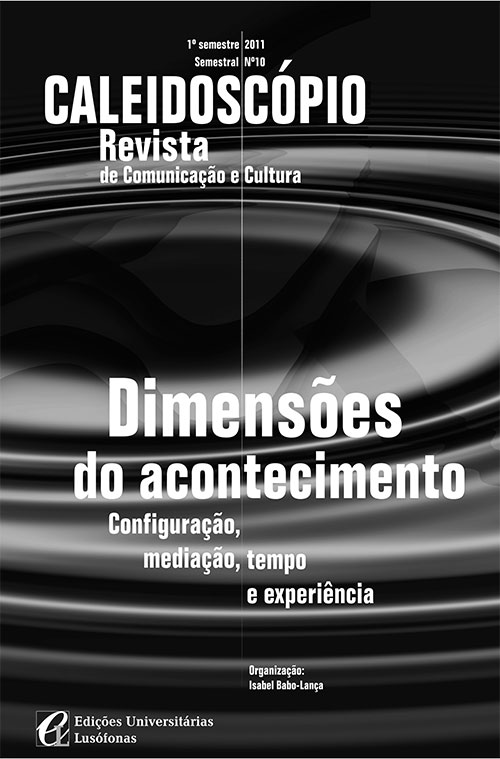Do acontecimento público ao espetáculo político-midiático
Abstract
Este artigo tem por objetivo analisar o processo de transformação de acontecimentos públicos em espetáculos político-mediáticos, a partir da hipótese de que isso ocorre somente quando a qualidade do acontecimento se impõe a partir de requisitos como potencialidade, vitalidade, autonomia, passionalidade e rituais associados a ideais coletivos. Estes são indicadores que caracterizam o impacto de um acontecimento público sobre a sociedade e indivíduos, de tal modo que são adotados por instituições políticas e organizações mediáticas que o transformam em espetáculo político-mediático através da apropriação do acontecimento e da sua tradução à estética mediática, ao jornalismo, propaganda, entretenimento, discursos políticos, cerimônias mediáticas e, como conseqüência, sua comercialização e consumo. Como decorrência, a formação e partição da imagem pública associada ao espetáculo político-mediático. A consecução deste processo depende das paixões, como dispositivo de compreensão teórica e de manutenção dos espetáculos político-mediáticos.Palavras-chave: comunicação política, acontecimento público, espetáculo políticomediá tico.
Downloads
Download data is not yet available.
Published
2013-09-03
Issue
Section
Artigos
Authors who publish with this journal agree to the following terms:
- Authors retain copyright and grant the journal right of first publication with the work simultaneously licensed under aCreative Commons Attribution License that allows others to share the work with an acknowledgement of the work's authorship and initial publication in this journal.
- Authors are able to enter into separate, additional contractual arrangements for the non-exclusive distribution of the journal's published version of the work (e.g., post it to an institutional repository or publish it in a book), with an acknowledgement of its initial publication in this journal.
- Authors are permitted and encouraged to post their work online (e.g., in institutional repositories or on their website) prior to and during the submission process, as it can lead to productive exchanges, as well as earlier and greater citation of published work (See The Effect of Open Access).


